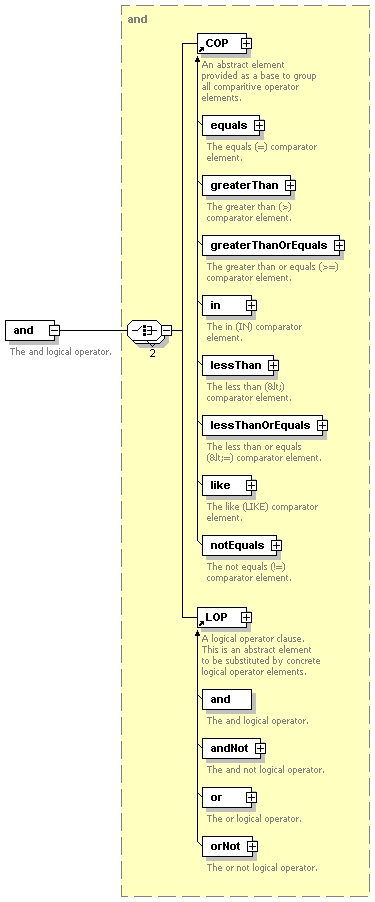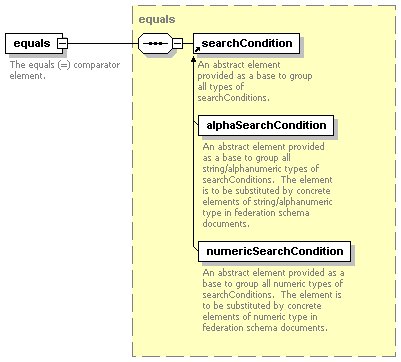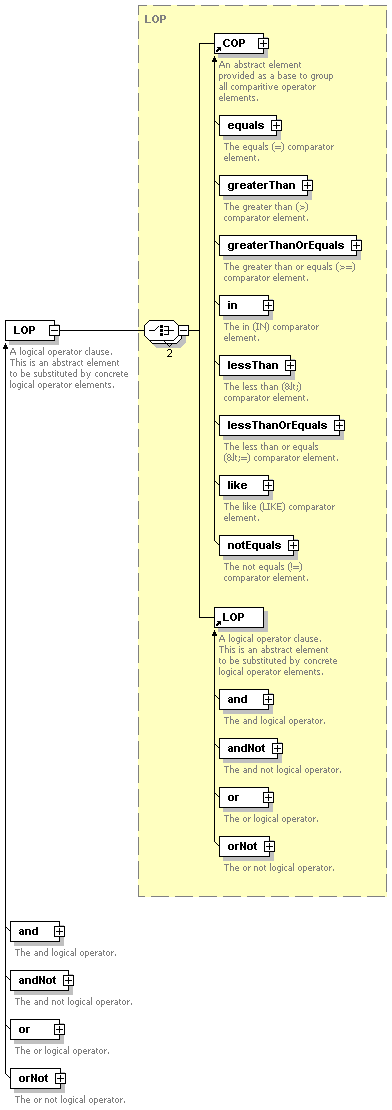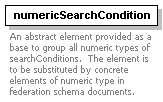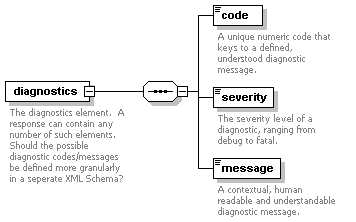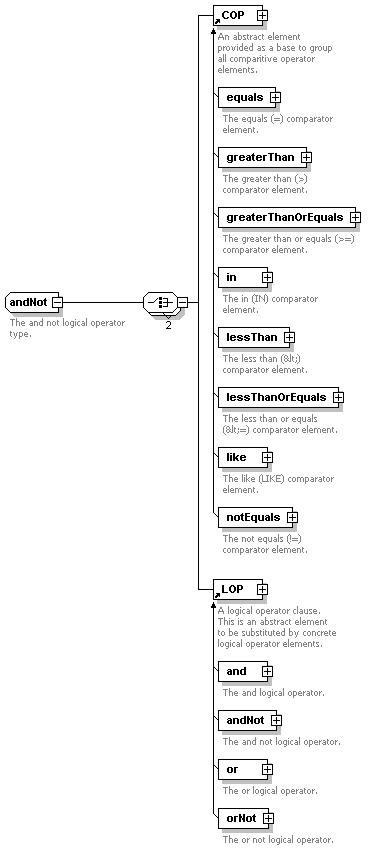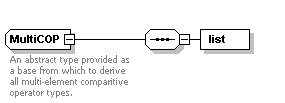| source |
<xsd:element name="response">
<xsd:annotation>
<xsd:documentation>Response message format.</xsd:documentation>
</xsd:annotation>
<xsd:complexType>
<xsd:sequence>
<xsd:element name="header">
<xsd:annotation>
<xsd:documentation>Inline response header. Still need to define its elements.</xsd:documentation>
</xsd:annotation>
<xsd:complexType/>
</xsd:element>
<xsd:element name="content">
<xsd:annotation>
<xsd:documentation>The content of the response, as in the search results or status information. Still need to define what response formats will look like. For now, we use xsd:any becasu the content will be some XML that we do not know yet or that we will not know.</xsd:documentation>
</xsd:annotation>
<xsd:complexType>
<xsd:sequence>
<xsd:any maxOccurs="unbounded"/>
</xsd:sequence>
</xsd:complexType>
</xsd:element>
<xsd:element name="diagnostics" minOccurs="0" maxOccurs="unbounded">
<xsd:annotation>
<xsd:documentation>The diagnostics element. A response can contain any number of such elements. Should the possible diagnostic codes/messages be defined more granularly in a seperate XML Schema?</xsd:documentation>
</xsd:annotation>
<xsd:complexType>
<xsd:sequence>
<xsd:element name="code" type="xsd:integer">
<xsd:annotation>
<xsd:documentation>A unique numeric code that keys to a defined, understood diagnostic message.</xsd:documentation>
</xsd:annotation>
</xsd:element>
<xsd:element name="severity">
<xsd:annotation>
<xsd:documentation>The severity level of a diagnostic, ranging from debug to fatal.</xsd:documentation>
</xsd:annotation>
<xsd:simpleType>
<xsd:restriction base="xsd:string">
<xsd:enumeration value="debug"/>
<xsd:enumeration value="info"/>
<xsd:enumeration value="warn"/>
<xsd:enumeration value="error"/>
<xsd:enumeration value="fatal"/>
</xsd:restriction>
</xsd:simpleType>
</xsd:element>
<xsd:element name="message" type="xsd:string">
<xsd:annotation>
<xsd:documentation>A contextual, human readable and understandable diagnostic message.</xsd:documentation>
</xsd:annotation>
</xsd:element>
</xsd:sequence>
</xsd:complexType>
</xsd:element>
</xsd:sequence>
</xsd:complexType>
</xsd:element> |

